#Jamaican Economy
Text

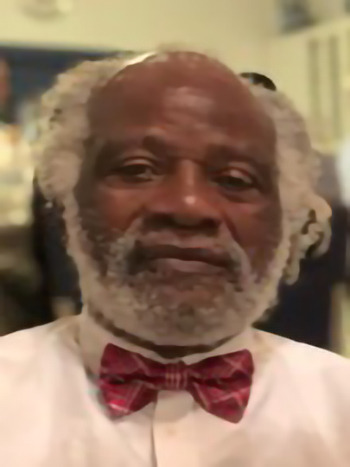
The writer, O. Dave Allen is a community activist and political commentator
MONTEGO BAY, Jamaica, January 25, 2022 - We the Jamaican people are at risk of becoming slaves again. We are a country with 95% African people. It’s a fact that the majority of the African population is at the bottom of the economic pyramid while the 5% at the apex are the minorities who control the economy. We all know that the economy is the superstructure that determines everything else, we also know that those who control the economy rules the country. It is time for majority rule.

When the Chinese were commandeering the local retail and distributive business, it was of little concern to the traditional moneyed class. Their long held sense of security is now threatened by the fact that the Chinese have cornered the retail business and have accumulated untold millions, buttressed by unaccountable billions of dollars of dubious origin with an insatiable and avaricious appetite of the tiger spreading their tentacles devouring all that is in its path.
There is an insidious war that is being waged by the Chinese business interest that will undermine all and every local Jamaican business. We are not here dealing with the compliant Chinese shopkeepers of yesteryears; but a contrived network, led by the Chinese State to dominate and control the Jamaica economy with Montego Bay as the entry point, bolstered by the powerful Association of Chinese Enterprises in Jamaica (ACEJ), a non-profit organization.
This mega conglomerate is akin to the Dutch East India Company (The Dutch East India Company historically a military-political-economic complex rather than a pure trading or shipping company).
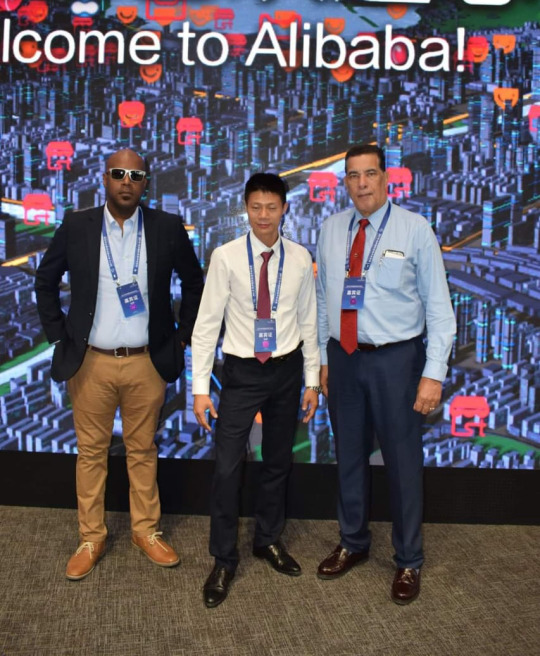
Can you imagine the consequences when the Chinese would have established their own bank and formal financial intermediaries?
Recently China Harbour Engineering Company (CHEC), was awarded the Government of Jamaica funded US$274.5-million Montego Bay Perimeter Road Project, which includes the rehabilitation of Barnett Street and West Green Avenue, as well as the construction of the Long Hill bypass and a drainage study of the Montego Bay bypass area is also to be conducted under the project.
This catalysis project strengthens the presence of the Chinese in Jamaica and serves as beachhead in Montego Bay to supplant the hegemony of the United States of America in Jamaica and make a mockery of the Monroe Doctrine as they pursue endless war at distant shores.
The Montego Bay perimeter road is funded by the Jamaican taxpayers and as such there is no justifiable reason why this contract should have been awarded to any overseas contractors.
The government has a duty not only to provide physical infrastructure but also to effectively use our taxpayer’s money to build our social capital and to strengthen the capacity of our human resource.
We have developers, engineers, contractors and consultants with more than adequate competencies to develop the Montego Bay Development Road. Our local professionals have demonstrated the capacity to execute and manage major projects as exemplified by the work carried out by Jamaican professionals on the Northern Coastal Highway.

In the recent Andrew Holness cabinet reshuffle the Hon. Homer Davis was appointed to head the Office of the Prime Minister West. This is no accident, but a strategic move to ensure the orderly integration of the Chinese into western Jamaica.
Minister Davis and Former Mayor of the City of Montego Bay enjoys more than cordial relationship with the Montego Bay Chinese community with numerous visits to China during his tenure in office. With the support of the Chinese Dr. Horace Chang remains the most powerful member of the Holness’ Cabinet.
While Bishop O’Neil Russell, and others may be disappointed in the reappointment of Dr. Horace Chang as Minister of National Security, they missed the bigger picture that Chang has consolidated his power base with the appointment of his Deputy General Secretary and his protégé Homer Davis as head of OPM West and the ostensible Emissary of the Chinese community, the new power base in Montego Bay.
To those who sing praises of Homer’s appointment, are living in a fool’s paradise. It is not about you, it is about the Chinese work permits and citizenship, building approvals, the clearance of their goods at the wharf and importantly their security. Homer Davis as a conduit who will ensure that the JLP is fully funded to win the next elections.

There will be a seismic shift in business activities back to the old city of Montego Bay. This regeneration started with Harmony Park, the building out of the downtown Montego Bay Waterfront District and soon the regentrification of the urban centre.
Finally, Who gave the Chinese the permit to dump the wetland and mangrove swamp at Reading to construct the multi story, multi family, high end, Chinese enclave. According to the Ministry of Economic Growth and Job Creation the “project will open new areas to the south of Montego Bay for development and expansion, giving access to lands for housing development.”
But will our local developers; Gore, Moe, Azan, WICHON be beneficiaries of the development opportunities.
China's Silk Road to Montego Bay, “Turn Them Back” ! says O Dave Allen (wiredja.com)
#china silk road#yahoo#jamaica#african#afrakan#kemetic dreams#brownskin#brown skin#afrakans#africans#jamaican#chinese#economic#economy#ecommerce#ecology#ecofriendly#ecosystem#sustainability#waste#tools#electricity#technology
3 notes
·
View notes
Text
Is Jamaica a Rich or Poor Country?
At Jamaica Homes, we are often asked this seemingly simple question: “Is Jamaica a rich or poor country?” The answer, however, is far from straightforward. Jamaica’s economic landscape is a complex tapestry woven with contrasting threads of wealth and poverty. The country’s economic status depends on the perspective you choose to take.
Tourism: The Double-Edged Sword
Tourism is one of Jamaica’s…
#Airbnb in Jamaica#Crime and economy in Jamaica#Economic disparity in Jamaica#Government economic policies Jamaica#Historical economic trends in Jamaica#Impact of tourism in Jamaica#Jamaica economy#Jamaica Real Estate#Jamaica tourism revenue#Jamaica wealth distribution#Jamaican cost of living#Jamaican cultural exports#Jamaican diaspora remittances#Jamaican GDP growth#Jamaican tourism industry#Post-independence Jamaica economy#Reggae and Jamaican economy#Rich or poor Jamaica#Structural adjustment Jamaica#Western media portrayal of Jamaica
0 notes
Text
#jamaica#economy#gdp#biden#population#performance metrics#politics#politricks#gdp per capita#jamaican takes
0 notes
Photo
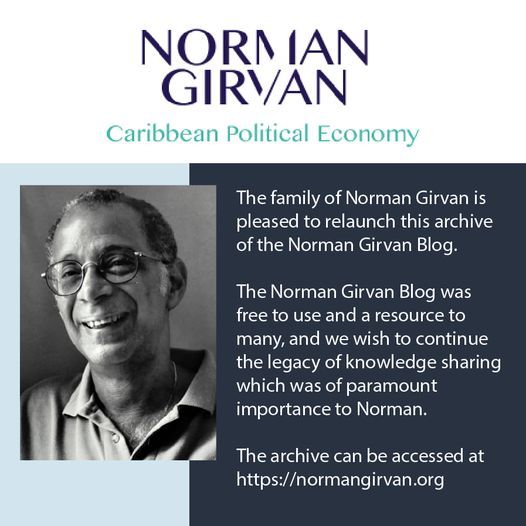
Galleryyuhself - What better way to sustain the valuable works of an icon than this tribute to his memory.
#Galleryyuhself/Norman Girvan#galleryyuhself/blogs of note#galleryyuhself/The Norman Girvan Blog#galleryyuhself/archives#tumblr/Norman Girvan#tumblr/Jamaican Thinker/ Theorist#tumblr/political economic development#capitalism#Caribbean governments#economy#economics#Norman Girvan#blogs#archives#history#theory#practicality#truth#knowledge#legacy
0 notes
Text
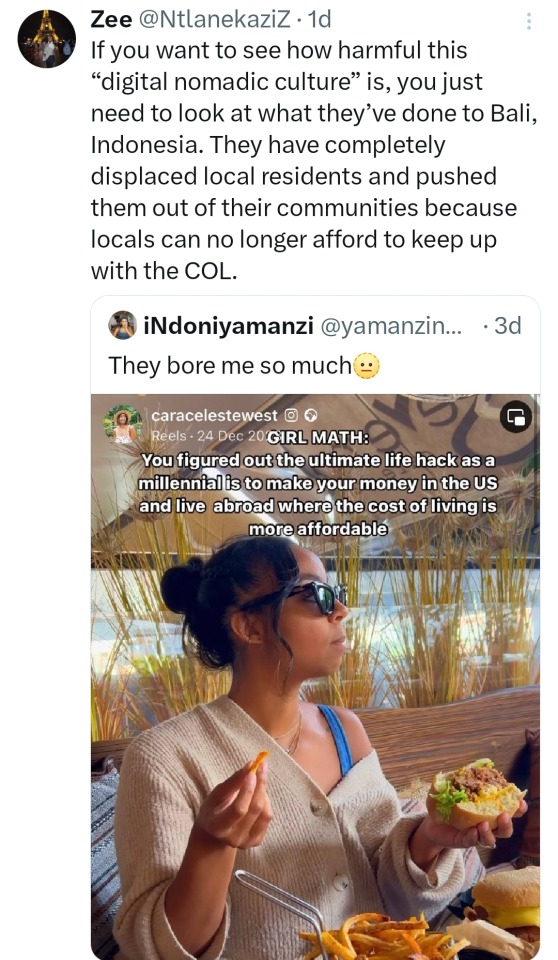
If you want to see how harmful this “digital nomadic culture” is, you just need to look at what they’ve done to Bali, Indonesia. They have completely displaced local residents and pushed them out of their communities because locals can no longer afford to keep up with the COL.
Original post: "They bore me so much🫥" with the caption from an Instagram story of. woman dining: "GIRL MATH: You've figured out the ultimate life hack as a millenial is to make you money in the US and live abroad where the cost of living is more affordable."
There's so many layers to unpack here. 'Tourism' in the Caribbean, for instance, is something I think about as well whenever I see people acting like this -these industries, which are highly exploitative towards the people and their communities and environments is one element -but the 'travelling to paradise' market itself is based in neo/colonialist frameworks and current mentalities and that itself is something that needs to be addressed much more. Especially with what is happening in Jamaica where so many Jamaicans are being pushed out of their own land when a tourist 'resort' wants to build or 'expand' because these 'ideal' locations are near the sea, where Jamaican people have been/are fishing for their own livelihoods and survival. I posted a video about this, but for those who haven't looked into these issues -I implore you to look into this.
I also think of Hawai'i, which has had many devastating impacts to their islands this past year -irreparable damages to both Native Hawaiians and the environment (and ongoing issues, such as the water being contaminated/and scarce there and yet tourists are prioritized for access to clean water sources) -and STILL people remained and traveled there during the Maui fires, and just overall despite countless pleas for them not to go they still do.
Among many the 'desirable destinations' marketed specifically to Europeans/Westerners as 'a getaway to' where they can detach from their busy lives, or to live permanently because it's 'too expensive' where they live -I sincerely wish they would come back down to earth and realize their imperialistic mentalities -especially when going to countries whose economies they perceived as 'poorer,' without looking critically at the country's infrastructure and history is just willful ignorance at best.
#feminist#feminism#tourism#tourist#gentrification#settler colonialism#colonialism#colonial violence#eco terrorism#hawaii#imperialism#western imperialism#travelling#travel#the caribbean#jamaica#dominican republic#bali#indonesia
119 notes
·
View notes
Text
Eric Levitz at Vox:
When Vice President Kamala Harris chose Tim Walz as her running mate, many pundits lamented her decision. In their view, the Democratic nominee should have chosen a vice presidential candidate who could mitigate her liabilities, and balance out her party’s ticket — such as Pennsylvania Gov. Josh Shapiro.
After all, Harris had been a liberal senator from one of America’s most left-wing states and then had run an exceedingly progressive primary campaign in 2020. To win over swing-state undecideds, she needed to demonstrate her independence from her party’s most radical elements. And selecting the popular governor of a purple state — who had defied the Democratic activist base on education policy and Israel’s war in Gaza— would do just that.
Walz, in this account, was just another liberal darling: As Minnesota governor, he had enacted a litany of progressive policies, including restoring the voting rights of ex-felons and creating a refuge program for trans people denied gender-affirming care in other states. Picking Walz might thrill the subset of Americans who would vote for Harris even if she burned an American flag on live TV and lit a blunt with its flames. But it would do nothing to reassure those who heard two words they did not like in the phrase, “California liberal.”
But there is more than one way to balance a ticket. Or so Harris’s team believes, if the third night of the Democratic National Convention is any guide.
On Wednesday night, Democrats used Walz’s nomination to associate their party with rural American culture and small-c conservative moral sentiments, while remaining true to a broadly progressive agenda.
Walz may not be especially distinct from Harris ideologically. But he is quite different demographically and symbolically. Harris is the half-Jamaican, half-Indian daughter of immigrant college professors who grew up in the San Francisco Bay Area. Walz was born into a family whose roots in the United States went back to the 1800s, and raised in a Nebraska town of 400, where ethnic diversity largely consisted of several different flavors of Midwestern white (Walz himself is of German, Irish, Swedish, and Luxembourgish descent). Harris is an effortlessly cool veteran of red carpets. Walz is a dad joke that has attained corporal form.
In her person and biography, Harris represents the America that has benefited unequivocally from the transformations of the past half-century — the cosmopolitan, multicultural nation that has greeted the advance of racial and gender equality with relief, and the knowledge economy that’s taken to globalization with relish. Walz, by contrast, was shaped by the America that feels more at home in the world of yesterday, at least as it is nostalgically misremembered — a world where moral intuitions felt more stable, rural economies seemed more healthy, and the American elite looked more familiar; the America that put Donald Trump in the Oval Office, in other words.
Or at least, the Harris campaign has chosen to associate Walz with all of that America’s iconography, attempting to make it feel as included in the Democratic coalition as possible — without actually ceding much ground to conservative policy preferences.
The introduction to Walz’s speech Wednesday night looked like it could have been scripted by a chatbot asked to generate the antithesis of a “San Francisco liberal.” A video montage celebrated Walz’s diligent work on his family farm growing up, his service in the US military, skills as a marksman, and — above all — success as a football coach. Democrats leaned especially hard on that last, most American item on Walz’s resume. Just before the party’s vice presidential nominee took the mic, a group of his former players decked out in their gridiron garments marched on stage to a fight song (not to be confused with “Fight Song”).
[...]
There is some basis for believing that Democrats might be able to win over a small but significant fraction of Republican-leaning independents by wrapping center-left policies in conservative packaging. Some political scientists have found that when moderate and conservative voters are presented with a progressive, Democratic economic policy idea — that is justified on the grounds that it will help uphold “the values and traditions that were handed down to us: hard work, loyalty to our country and the freedom to forge your own path” — some do respond favorably (as do liberal voters, who take no offense at such abstract, traditionalist pieties).
Whether Walz tying himself to rural American symbology — or Harris tying herself to “Coach Walz” — will be enough to blunt Trump’s attacks on the Democratic nominee’s supposed “communism” remains to be seen. But the Democratic ticket is at least trying to make right-leaning Midwesterners feel like they belong (even if they do not think like Democrats do).
Tim Walz’s DNC speech last night reflects a broader trend of Democrats reclaiming freedom and patriotism while also selling its liberal agenda. #DNC2024 #HarrisWalz2024
See Also:
HuffPost: With Kamala Harris, It’s Cool For Liberals To Be Patriotic Again
21 notes
·
View notes
Text
Part 2: Why is the accent? Where and when does Hobie come from?
Part 1: Who, What (London Accents) | Part 3: How (Writing Tips)
In this section, we'll touch on racism since the 70s, black Londoner youth culture and how punk has historically interacted with those things.
To begin, let’s answer the question of what the hell all us black people are doing here in the U.K. 😂
Long story short, after World War II, the U.K. invited subjects of the empire over, in need of help rebuilding the place and doing essential work after getting bombed and stuff. There was further incentive on the subjects’ side to come as many of their men had been sent off for the war but were out of work and not properly compensated upon their return, leading to a poor economy and many people hoping for better in the ‘mother country’. Caribbean people, mostly Jamaicans, came over from then right through the 60s but were not welcomed and treated as British as many of them thought they might be… cause, you know, racism.
In 1962, 1968, 1971 and 1981, legislation was passed that made it incredibly difficult for black Caribbeans to come over, even to this day, which led to the migration of black people shifting to predominantly Africans, mostly West Africans, in the 80s, who would come for education and work purposes mostly. (For context, in the 2020s, there are more African people than Caribbean people in the U.K.). In the 70s and 90s, East Africans fleeing conflict have also immigrated en masse, although the numbers were quite a bit smaller than the West African and black Caribbean diaspora.
[not an expansive breakdown of all ethnicities, I just wanted to talk about the most populous black nationalities for the general gist of where black British life really got on a roll]
So, onto life as a black person in the U.K.
It’s important to remember that the U.K. was racist as fuck AND did not have Jim Crow laws or a history of relegating certain cities or neighbourhoods to ethnic minorities because, by the time we had been invited, there were not so many of us living in England for such laws to be deemed necessary (by racists).
Living literally side by side, often in the same building, with people who wanted to see them brutalized had a big impact on how black British people navigated life back then and has residual cultural effects on how we behave to this day.
One thing that stood out to me was the line where Hobie says he has “a laugh at the pub with the mandem”. As many of you will know, the pub is a large part of general British culture as the main drinking scene. Until more recently, you couldn’t just go and buy alcohol from the supermarket or whatever like you can now, so people had to go to the pub for a drink. Additionally, during times when getting clean water was unreliable due to cholera outbreaks, a drink from the pub was safer than drinking water.
It’s also important to know that, unlike clubs, many pubs sell food and are family-friendly, so while it’s not likely for a little kid to be bouncing to go the pub because it’s just basically like a restaurant to them, it’s a place that a child can be used to going to.
Not only do pubs sell food, but pubs also are places that are mostly used to watch football, as well as play pool, participate in pub quizzes (competitive general knowledge pop quizzes done in teams) and generally be out late to sit and talk.
That being said, as I mentioned before, how black people navigate where we live is different to how white people do.
Whilst many black people will go to the pub with their work colleagues or with their mixed friend groups, pubs generally have never been a haunt for black adolescents.
Instead, black drinking culture is more associated with dance and music, i.e. house parties, clubs (particularly clubs or club nights where music popular amongst the black community is played and, in older times, basement boozers) and lounges. Unlike white counterparts, most black kids will not have grown up going to the pub or around people who went and would not be used to going until they got invited out, likely by workmates.
To this day, although racism has chilled out so much since the mid-20th century, a lot of younger people actually still have a latent fear of facing racism from white football hooligan types and drunk, older white people in pubs. If you went to a pub, you typically wouldn’t see many young black people in there, if any.
The epitome of this mindset was on display during the last World Cup, during which Gen Z black U.K. TikTok was filled with half-jokes about the brutality they would face sitting in the pub to watch an England game if a black team member were to miss a kick or otherwise make a mistake. It was something we joked about in real life too and there was a rumour that went around - which many of us believed to be true - that two black guys had been thrown in the Thames because the black players had missed the penalty kicks they took.
It was just a rumour, however, people did take to racially abusing the players online and, whilst it wasn’t true, you can see what the general attitude towards pubs tends to be and why it’s not a hotspot for black youth.
There are U.K. pubs that historically have had more black patronage in black communities but there’s only a few and they’re not really a thing in London.
Knowing that, it’s not to say that no young black people frequent pubs, but it means that it says something about Hobie that he does (or his world, which we’ll talk about later). What it says exactly is up to your headcanon, but it’s worth noting that it’s not typical for a black teenager in London to hang out at the pub, even if they are rebellious and not concerned by the drinking age.
So you may be thinking, damn, why do pubs have such a reputation? What happened that meant that - to this day - there’s such a divide?
While the U.K. was always racist and was unwelcoming to those who arrived during the Windrush period, it continued to get worse going into the 70s. The increasing popularity of the fascistic political party called the ‘National Front’ saw the rise of ‘the immigrants are taking our jobs’ rhetoric used to appeal to the white working class that persists, to a less extreme, today, such as with the political party UKIP, as well as the English Defense League (EDL), both of which have taken on a more Islamophobic angle than the focused and explicit anti-black & anti-browness of the National Front. The National Front’s supporters would chant and sing stuff like “We’re gonna send the blacks back”.
In daily life, black kids had to deal with shameless racism, bullying and violence from their white peers. There was a ‘sus’ law implemented, which essentially made it so that police could (and very much did) stop and arrest any black person they saw on the street that they felt was ““““suspected person””””, which included unprovable and outrageously ridiculous bullshit like being suspected of ‘loitering with the intent to steal’ (so basically, if you’re black and outside, you were - and still are, especially if you’re young - likely to be suspected of this). As mentioned earlier, there were people who would watch games and get drunk in the pub, then go out into the streets on a destructive rampage would also take those opportunities of chaos to physically assault black and brown people.
All of this was on top of institutional racism and micro-aggressions like we have today but turned up to 10. Minorities didn’t feel safe going around their own city alone for fear of getting mobbed or having rocks thrown at them. Even in their own homes, racists were putting literal shit and bombs in their letterboxes. The popularity of the National Front saw a rise in Nazism - an especially wild expression of racism, considering the Nazis had bombed the fuck out of London in WW2, which was the reason the U.K. went crying to the subjects for help in the first place.
So, naturally, ethnic Londoners tended to craft and operate in their own spaces when it came to leisure, more attuned to the cultures from their family’s countries of origin as well as the kinds where they were just generally more accepted for who they are. Though no longer out of necessity for safety, this aspect of Black British culture persists today, to a lesser extent though, and latent anxieties about acts of extreme racism still remain in the collective subconscious, even though most young people today will have never experienced such extremes.
Just for clarity, this is not to say black people are afraid of white people in general, I’m not sure that could even have been said in the 70s, since there were also plenty of non-racist (aka normal) people too. Back then, the culture was probably a lot more gatekept than it has been for the past few decades, but I’m trying to explain why black British culture and black British life is a different experience to being white British, it’s not only experiencing racism, but it’s also that we just do different stuff cause we historically didn’t feel welcome at their figurative tables and thus did our own thing mostly. It’s why you still get friend groups that are predominantly black despite everyone’s families likely coming from different countries with different cultures, because we relate in terms of black British culture and not feeling especially understood amongst white counterparts. But if white people make us feel like they are down with us, we’re down with them, as one would hope lol.
Speaking of down white people, another huge part of Hobie’s character is that he’s a punk, of course.
So, not gonna lie to you guys, due to the things I just stated about how black people had to navigate the world and craft their own spaces in order to feel comfortable and safe, the punk scene (as we would think of it) has never been a thing that was popular amongst black British people. It’s a predominantly white scene and during the 70s was not unaffected by rising Nazism. To this day, there are still Nazi punks and what we call dirtbag leftists, so you can imagine, at the time, though there were and still are more non-racist white punks, there were enough Nazis that a. it’s not something that seemed welcoming to black people and b. non-racist White punks in the 70s felt that the Nazi problem was bad enough that they needed to do something big about it, which we’ll get onto.
Because we’re not a monolith, of course, there were black punks such as Poly Styrene, the lead singer of X-Ray Spex, and Basement 5, a punk-reggae band (remember this), but other than that, I haven’t been able to find documentation of black punk life in particular, nor have I been able to get any personal accounts from family. Punk is a small-ish scene to begin with, so you can imagine that the black people who participated are very few. Here, I’m not trying to say that few black people enjoyed listening to the music as part of their taste, I’m pretty sure a lot of young people would have liked the music but not necessarily been active in the scene/culture in the way that white counterparts were.
Again, the fact that Hobie is a full-out punk as a black teen says something about him or his world; what in particular, is totally up to interpretation and headcanon, but understand that it’s another unique behaviour.
A similar thing that did include black people was ‘skinhead’ culture, something that emerged from and celebrated the working class, especially Jamaican people, in the 1960s, but it was co-opted by ‘punk’ and white people, then drifted away from its associations with and relevance amongst black people and became most popular amongst Nazis in the 80s, associated with the ‘British Movement’. Most people will think of racist white football hooligan types when they think of skinheads nowadays, even though in reality, for both punks and skinheads, not all people in these subcultures are racist/fascist.
As I mentioned earlier, because minorities were living side by side with working-class white people, a lot of stuff that wasn’t kind of gatekeepy (i.e. super black) has always been at risk of being yanked from us and has historically been done by literal Nazis and I’m sure this plays a part in alternative scenes that stray very far from the cultures we’re raised in not being the most popular amongst us.
Nonetheless, non-racist punks and black people agreed on a lot of core points about classism/capitalism and the need to stomp out racism, which led to white punks starting the Rock Against Racism (RAR) organisation, which held concerts across the country with the intention of bringing people together to take a stand against racism. If you’re able to, I recommend watching the documentary about it called White Riot (2019), which whilst it does include some black interviewees, focuses on the white punks’ side of things and the racism of the time, as opposed to black life. Still worth the watch :)
Other than punk rock, you know what other acts were invited to play at these RAR concerts?
Black musicians who played funk and reggae were also invited. Even though their music taste was different, the message was the same. Additionally, it might surprise non-British people to hear but even white British people have long loved themselves some reggae, hence Bob Marley’s popularity here.
Reggae is a genre that is often used to speak on politics and social issues, it’s why Rastafarians love it and make such music. So, whilst the punk-reggae fusion of Basement 5 might sound strange today when reggae is not as popular as it once was, it makes total sense why. You can also see references to the London punk scene in the 70s (the time he was living in London) in Bob Marley’s song “Punky Reggae Party”.
I mention this to emphasise how the blackness of black British people, even in white space, has not typically proven to give way, that to be punk or believe in such values is not to relinquish all traces of black culture. I also say this to say, as I’ve said in a previous post bouncing off of Daniel Kaluuya’s thoughts on ‘punk’, that people who are adamant Hobie would not listen to genres of music that are popular with or created by predominantly black people alongside the more typical punk rock give off strange vibes. There’s no precedent for a black person to totally give up that part of them that they would’ve grown up with just because they’ve solidified a political view. Of course, some people are less into it than others, as I said earlier, black people are not a monolith, but given all this context, I’m begging people to not post things like ‘Hobie would never listen to [insert black genre here] because he’s a punk! Other people’s headcanons/playlists are stupid and they’re punk posers!’.
You can believe he only listens to genres of rock, and that’s fine, but stop telling black people that their headcanons where they project their more black tastes onto Hobie are inaccurate because they aren’t and it’s very strange to gatekeep interpretations of a black character from blackness in that way.
If you do want to know some genres popular amongst or pioneered by black British people, most of which popped off in the 90s, look to grime (hip hop, electronic), garage (electronic), drum n bass (electronic), jungle (electronic), U.K. drill (hip hop), afroswing (hip hop, r&b), reggae, dancehall (hip hop, reggae), hip hop, funk and r&b. I’d say pop since it’s popular amongst all ethnicities lol but, since Hobie is a punk, you’re gonna wanna exchange that for rock and indie, though I think it’s also fair to think there’s a few pop songs that Hobie would like, since being an anarcho-communist doesn’t mean you can’t have a little fun, idk. Headcanons and stuff are not really what I’m here to share or enforce. Plus, of course, a lot of these genres are anachronistic but, at the same time, I’m pretty sure most people’s playlists feature more modern songs anyway, hell, even the song selected as Hobie’s intro is from 2011.
And none of this is not to downplay Hobie’s love of rock genres either.
I did make a playlist for myself, if anyone wants it or recommendations you can drop an ask 🤓
In the past few years, there’s been a noticeable growth of alternative life in London black youth culture, notably the roller-skating scene, as well as more people participating in more classic takes on alternative culture like goths, punks, etc. and, of course, black nerd culture has been popping since the late 90s. The black people participating in these alternative cultures aren’t relinquishing their blackness, putting hip-hop in the bin and whatnot - people can be multi-faceted.
What I hope you take away from this is that Hobie is a unique and nuanced character, he’s not a typical representation of any of the things he is, which is personally why I love him so much. I also hope you understand that being a black punk in the U.K., before more recent times, would have been a different thing to being a white punk because, not only are you participating in a counter-culture, you’re going outside the safety net and norms of black British culture which has been positioned as inherently counter-cultural anyways and is one you can never hide your associations with or come out of. It says a lot about him, it comes down to headcanon what, but it’s important to recognise that these aspects of him are not a given but things that would have been purposeful developments or huge moments of self-discovery in his life.
Headcanons are something that throws somewhat of a spanner into the works. Everything I’ve said is historically accurate but we also don’t know that Earth-138’s New London would reflect all these aspects of our Earth’s London. Perhaps 138 is written in a race-blind kind of way or, not coming from black British culture, the writers may not envision the world authentically from our point of view and might be unaware of how it’s different; maybe the execs would not allow them to tap into the racist aspect of Nazism and have the writers keep it vague for marketability's sake; hell, maybe the date on the mugshot was just an Easter egg and not a canon-accurate date, who knows?
On top of that, if you headcanon Hobie as a transracial adoptee (meaning adopted by people of another race) or that he was orphaned at a very young age or otherwise not enculturated and socialised as a black boy, maybe none of this applies.
From the current slang to the casting of Daniel Kaluuya, it seems clear to me that, in tandem with the retro vibe, Hobie has been designed to also evoke more contemporary ideas of blackness so the full picture of what the writers have in mind is anyone’s guess at this point.
That being said, I feel like those conclusions would all take some stretching and reaching to come to. I’m not here to tell you what you can and cannot interpret or write, but I’m just trying to give some information so you can write more accurately and understand Hobie and Black Londoner life better.
So, now you understand where we’re coming from, I think you’re ready for the writing advice 😎
139 notes
·
View notes
Note
What's like the point of insisting that black people in the USA (&probably Europe but that's not what the discourse is about) don't benefit from imperialism other than feeling good? Like when they annoy bloggers for generalizing people of the USA the topic of discussion is most of the time either actions of the state itself or dominant culture. Demanding people to specify "white" is somewhat obnoxious to non-Americans, but it doesn't change the points in the slightest (sometimes it's even fair when it comes to say settler mentality, probably also when it comes to religion).
Black people constitute 13(?)% of USA population and are in fact mostly poor, so even if we completely ignore their participation in imperialism it doesn't change things, so it's not even meaningful sabotage.
I am not American so I probably don't know how it affects movements inside, but it really feels pointless.
(In fact the only people whom I saw be really offended by it are black people not from USA, so like. Also by obnoxious I meant that I saw them accuse of racism for not specifying "white Americans" people who are not white in the first place, because it feels like "you have to know the internal complexities of my country while I can not know anything about your")
I understand the well-meaning nature of this ask, so I'm going to try my best to reply in kind in the spirit of good faith. First and foremost the thing that people need to get updated on is that most black USians are not poor. Less than 20% of black people in the US live below the federal poverty line, a little over 17%. That is in fact about twice the poverty rate of White USians, and the federal poverty line certainly does not represent the increasing hardships brought upon Especially black people by the de-industrialization and precaritization of the US economy, but even adjusting for that, the fact of the matter is, most of us Are Not Poor. Poverty is widespread enough in our communities that there's almost no one among us that doesn't know someone in our family or social circle that does live in crushing poverty, but that is not the reality of Most of our day-to-day lives. And that's the thing that makes me mad, instead its the laundering of the suffering of people we See in our lives that is being used to win internet arguments and be petty bullies. Perhaps excluding the very richest Black USians, blackness is absolutely something that leaves us potentially marked for execution at any time and within the US we face constant institutional abuse and deprivation, most notably in medical settings; there's no denying we're at the rock bottom of the US's vicious and brutal racial caste system.
However, where is this reality any different for black people? If you compare the PPP-adjusted GDP per capita of Black USians to, for example, Black Ayitians, Black Jamaicans, Black Brazilians, Afro-Latinos, and indeed Black Africans, the reality is that while we're still black, we're by far the richest black community in the world, and how did we get so much richer than other Black communities? It's through our bitchass "community leaders" who have done nothing for decades but push class collaborationism and "black capitalism" in the community, collaborationism with global white-supremacist fascism, in the wake of the systematic destruction of the radical Black liberation movements of the 1960s and 1970s.
27 notes
·
View notes
Text
stealingmirrors replied to your post “rolling cookie dough I made a few days ago into...”
that pasta you talked about in the tags sounds actually divine??? would that i could be a friend in your kitchen, that all sounds lovely
...it was really, really good, even reheated in the office kitchen or left on the countertop as I bustled about, working from home.
Honestly, I have yet to encounter a recipe from America’s Test Kitchen that isn’t good, easy to understand, and most importantly, flexible---I have Jamaican beef handpies in the freezer, I’ve left pastry proofing for forty-eight plus hours; even in the recipe below I basically kept stirring and adding pasta water until the cream sauce was exactly the consistency I wanted, no measurements required. I love a recipe so durable that you actually can’t fuck it up, unless you have truly no knowledge of cooking at all, in which case: sorry and also, thank you for supporting the takeout economy.
So in celebration of great recipes and the people who hate them, from America’s Test Kitchen Vegetables Illustrated:

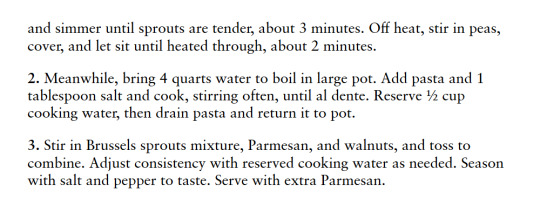
#I didn't realize I would be this person BUT! cookbooks are good actually.#I think I prefer the ebooks because they're searchable and can be bookmarked with a click of the mouse and are still portable#but also. it's really nice to know that a bunch of people in a kitchen tried adding an additional cup of cream#or shallots vs onions#and decided#yes actually. this is the best version.#even if I disagree! I just like knowing someone thought about it#........also I think you should add some red pepper flakes to the shallots when you saute them#tw food#no love sincerer than the love of food
220 notes
·
View notes
Text
Julius Scott’s legendary study tells a captivating story of the unrest of “masterless” communities, as he terms them, in the late eighteenth-century Caribbean and its implications for the Atlantic World. This unrest was undergirded by what he terms a “common wind” of seditious political news circulating through an increasingly mobile and interconnected region. He deftly sets the context [...] to imperial tensions that culminated in uprisings and revolutions within [...] the French, British, and Spanish Empires. [...] He builds what is this field-defining work from a triangulated analysis of three central hubs of the colonial Caribbean in terms of [...] prosperity in the plantation economy, and political importance to these aforementioned empires: Saint-Domingue [Haiti], Jamaica, and Cuba. But he also explores similar occurrences within [...] Martinique and Guadeloupe for the French, Venezuela and Trinidad for the Spanish, and Dominica and Grenada for the British. He also includes [...] the engagement of the newly formed United States in this network, reinforcing the broader Atlantic impact of the common wind’s radical currents.
---
Chapter 1 explores the upheaval afoot in the mid-1700s colonial Caribbean through a closer look at the movements of a range of actors including enslaved runaways, military deserters, contraband smugglers, free people of color, and poor whites hustling in the islands’ urban centers and surrounding countrysides.
A variety of settings - including the fringes of plantations, maroon settlements, town-based markets, taverns, hospitals, barracks, and wharves - might presumably, if read with the archival grain, illuminate the map of state control. Instead, in Scott’s analysis, these represent the contours of the working class’s unlawful movements and ultimately their fraying of the colonial order, anticipating what Stephanie M. H. Camp [...] would aptly name [...] the “rival geography” of slave society.
---
Chapter 2 shows how sailors’ illicit forms of mobility [...] blurred the bounds between land and sea in this narrative of popular dissent. Their movements [...] as social beings and political dissidents bled into and helped sustain similar kinds of illicit commerce and socializing [...]. Chapters 3 and 4 demonstrate how the common wind consistently blew subversive ideas into and around the Caribbean, much to officials’ chagrin. Scott here homes in on the politically volatile era from the late 1770s through the late 1790s, which saw declarations of war, drastic changes in slavery policy [...] and the emergence of U.S., French, and, most significantly, Haitian revolutionary uprising. [...] [E]nslaved communities everywhere in the region followed as intently as they could as the campaign of the enslaved rebels in Saint-Domingue began in 1791. [...] Political news, no matter how hard officials in the colonies and the metropoles tried to block it, spilled into all levels of society [...]. What flowed through all of these channels animated questions about master-slave relations, mercantilist policy, individual rights [...]. Scott carefully traces the influence of the unfolding Haitian Revolution on well-planned but eventually thwarted uprisings of enslaved people in the Venezuelan port city Coro, the Dutch colony of Curaçao, and the parish of Pointe Coupee in then Spanish Louisiana, all in 1795. He also illuminates the multiple instances of inspiration in the 1790s evidenced in enslaved communities throughout the United States [...].
---
Essentially Scott reveals that the Age of Revolutions cannot be understood without comprehending black resistance in times of war and peace. The tale of Phebe, one of many enslaved Jamaican female runaways who became an itinerant higgler hiding in plain sight in urban spaces like Kingston, or the story of the 1790 mutiny of four enslaved sailors who overtook the Saint Kitts sloop the Nancy with respective origins in the Caribbean, West Africa, and the U.S. South, which Scott called a “microcosm” of the Atlantic, are but two of multiple narratives he includes to show that enslaved people [...] actively built and sustained those circuits via their multilingualism, their savvy, and above all their dedication to achieving a state of masterlessness [...].
This could be achieved not just through formal manumission processes, but through running away and re-creating new lives and livelihoods [...]. The [...] knowledge that these dissidents obtained in their labors allowed them to escape to lives not “off the grid,” but rather in the centers of commercial and state activity, ensconced in communities of opposition and poised to obtain news that prepared them well for their next moves in their albeit precarious existence. [...]
Scott complicates earlier framings of the oppositional working class as strictly of European origin [...]; [...] Scott’s unpublished dissertation [...] influenced the interventions made in Linebaugh and Rediker’s The Many-Headed Hydra [...] years later. [...] He centers enslaved people within the revolutionary Atlantic not just as workers [...] but also as strategic thinkers, and he does so long before it was popular to do so in this field of history. [...] [H]e demonstrates how so many ordinary enslaved women and men regularly engaged in quotidian forms of fugitivity across various imperial territories of the Caribbean [...]. The dissertation also came several years in advance of the still pivotal call advanced by Michel-Rolph Trouillot’s 1995 Silencing the Past, about the denied centrality of the Haitian Revolution to the Age of Revolutions in its time and in retrospect. Scott’s work undeniably influenced many Atlantic historians [...]. The Common Wind is not only a historical and historiographical revelation; it is also a genuinely exciting read.
---
All text above by: Natasha Lightfoot. "The Common Wind: A Masterful Study of the Masterless Revolutionary Atlantic". The American Historical Review, Volume 125, Issue 3, pages 926-930. June 2020. [Bold emphasis and some paragraph breaks/contractions added by me. Presented here for commentary, teaching, criticism purposes.]
15 notes
·
View notes
Text
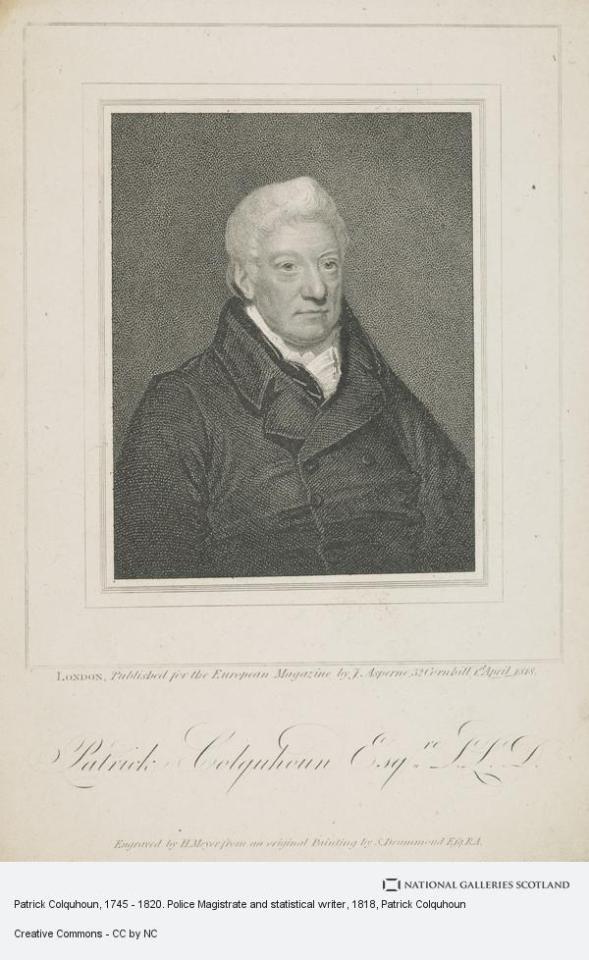
Patrick Colquhoun was born born in Dumbarton, on March 14th 1745.
Colquhoun was sent to the new world and served an apprenticeship as a sixteen-year-old in Virginia in North America. Likely working in a tobacco store.during the American Revolution he was part of the Government militia, in what was a Glasgow regiment to contribute to the government’s war effort. This part of history is being explored at the moment in the hit show Outlander.
On his return to Glasgow he became one of the city’s famous/imfamous ‘Tobacco Lords’. He had multiple commercial interests and was also a co-partner in the Glasgow-West India firm, Colquhoun & Ritchie, that traded with Jamaica and Antigua. As such, his wealth was derived from transatlantic slavery and its commerce, perhaps this is why he is not as well known in his native Scotland, we have a habit of brushing over the shame in the abhorrent trade of human beings.
In 1782 he built Kelvingrove House - in what is now Kelvingrove Park - as his residence. Colquhoun was Lord Provost of Glasgow, 1782-1784 and founder and the first Chairman of Britain’s oldest Chamber of Commerce in Glasgow in 1783. He was an honorary graduate of the University and the Colquhoun Lectureship in Business History is named for him. He moved to London in 1789 where he became a magistrate and published pamphlets on policing and other social issues of the day.
It is due to his work in London and those writings on policing he is credited with being the founder of the first regular investigative police force in England, The Thames Valley Police the first regular professional police force in London. Organised to reduce the thefts that plagued the world’s largest port and financed by merchants, the force was directed by Patrick Colquhoun and consisted of a permanent staff of 80 men and an on-call staff of more than 1,000. Two features of the marine police were unique. First, it used visible, preventive patrols; second, officers were salaried rather than stipendiary, and they were prohibited from taking fees. The venture was a complete success, and reports of crimes dropped appreciably. (In 1800 the government passed a bill making the marine police a publicly financed organisation.) This was a decades before Robert Peel established the Metropolitan Police, and it has to also be noted around the turn of the 18th City of Glasgow Police was established.
Colquhoun’s treatises on police also inspired the foundation of police in Dublin (Ireland), Sydney (Australia), and New York (USA).
Colquhoun’ has also been criticised for his violent oppression “wholly in the service of an industrialist and property-holding class in the earliest incarnation of socio-economic warfare in the Atlantic economy.” He “organised political surveillance by spies and snitches of those opposing slavery. In addition to his Virginia cotton interests he owned shares in Jamaican sugar plantations.” So by many accounts a nasty piece of work.
Colquhoun has been called ‘the Father of Glasgow’ because of his role in promoting Glasgow’s trade and manufacturing during the late 1700s. In fact, he referred to himself in this way when drawing up his will in 1817. We have a name for such people in Scotland, and it really fits this guy- Baw Heid.
8 notes
·
View notes
Text
Auron MacIntyre
Aug 17, 2024
Kamala Harris is an embarrassment. After running an abysmal presidential campaign in which she failed to win a single primary, the U.S. senator from California was placed on the Biden ticket to satisfy the demographic requirements of progressive ideology. Harris was intended to be the heir to whom an elderly Joe Biden would pass the torch. Once in office, however, it became clear why she had failed as a presidential candidate. The vice president was quickly relegated to the background, becoming an afterthought until a disastrous debate performance by Biden made it clear that the press could no longer cover for its senile figurehead.
The media has now relaunched Harris as a charismatic social media icon, and the bizarre thing is that many conservatives seem to have fallen for the propaganda blitz.
During the 2020 election, as the media paired with the managerial state to manufacture the appearance of a world-ending plague, Joe Biden was offered as an inoffensive placeholder who would usher in a return to “normalcy.” The election of Donald Trump sent the establishment of both parties into a psychological tailspin, and the ruling class decided to visit that mental anguish on the public.
President Trump proved capable of avoiding foreign conflicts, reducing the flow of illegal immigration, and overseeing a successful economy, but the media’s obsession with the Russia collusion conspiracy theory made every moment feel like a pitched battle. The successive blows of the pandemic and Black Lives Matter riots gave progressives the narrative momentum and electoral irregularities necessary to unseat Trump, but they needed a bland alternative that the terrorized electorate could turn to safely.
Even leftist media commentators recognized that while old, doddering Joe was inoffensive enough to get the job done, he was too male and too white to represent the future of the Democratic Party. Harris was not great on the campaign trail, but she was a woman of Jamaican and Indian heritage who was just as much an empty vessel as Biden. She also had the advantage of not being plagued by dementia.
4 notes
·
View notes
Note
so i've been looking around for awhile and havent come up with much! i'm looking for a fem fc whos in her 20s and is also a model -- but doesnt have the " typical " model build. pref. someone who's has a more athletic ? build ? but also open to body diversity in general !!! pref woc !! tysm < 3
Jade Cargill (1992) Afro Jamaican.
Red Velvet (1992) African-American.
Kiara Marshall (1992/3) African-American - is an amputee.
Jordan Alexander (1993) German, Irish, African-American - has spoken up for Palestine!
Arsema Thomas (1994) Nigerian / Ethiopian - has spoken up for Palestine!
Aliyah (1994) Syrian and Iraqi.
Kiera Hogan (1994) African-American.
Willow Nightingale (1994) African-American.
Ryan Destiny (1995) African-American.
Megan Thee Stallion (1995) African-American - is bisexual.
Lyric Mariah (1995/6) African-American - is an amputee.
Ayo Edebiri (1995) Yoruba Nigerian / Barbadian - is queer.
Tati Gabrielle (!996) African-American 1/4 Korean.
Ajiona Alexus (1996) African-American.
Yumi Nu (1996) Japanese / Dutch.
Naiomi Glasses (1996/97) Navajo.
UraN / luv02_uran (1997) Japanese.
Lori Harvey (1997) African-American.
Riho (1997) Japanese.
Alaqua Cox (1997) Menominee and Mohican - is deaf and an amputee.
Joanna Pincerato (1998) Mexican, Syrian, Swedish and Italian - has spoken up for Palestine!
Samara Joy (1999) African-American - has spoken up for Palestine!
Aaron Rose Philip (2001) Afro-Antiguan - is a trans woman who has cerebral palsy - has spoken up for Palestine!
Trying to find muscular women in this economy? Wrestlers to the rescue! Here are some suggestions though including disabled and fat women!
6 notes
·
View notes
Text

John Henry Michael “JT” Thompson (born June 15, 1959) is the inventor of the Lingo programming language used in Adobe Director and a former Chief Scientist at Macromedia. He is a former professor in the Interactive Telecommunications Program at the New York University Tisch School of the Arts and an instructor at Drexel University. He is committed to teaching and motivating successive scions of tech developers. He is a graduate of MIT and the Art Student League of New York.
He spent part of his childhood in Jamaica. His parents, in search of a better life for their children, moved from the UK to New York. In 2012 he returned to his homeland Jamaica, to implement the Digital Jam 2.0 project. This included directing a course of mobile app development workshops. According to him the vision for the project was to “export an innovative software development strategy to enable Jamaican youth to prosper in the global internet knowledge economy.” He was honored for his innovations and commitment to coaching with the Silver Musgrave Medal for Science in 2012 by the Institute of Jamaica. #africanhistory365 #africanexcellence
2 notes
·
View notes
Text

-------o0o--------


She was demure and elegant in a flowing gown – he looked dapper and debonair in a tailored navy suit.
So pity the poor bride and groom whose lavish Caribbean nuptials were overshadowed by such glamorous guests.
Then again, if you will invite Prince Harry and his actress girlfriend Meghan Markle to your wedding, what do you expect?
All eyes were on the young lovers as the prince attended the wedding of friend Tom ‘Skippy’ Inskip at the weekend in Montego Bay, Jamaica.
Not having seen each other for a fortnight, Harry, 32, and 35-year-old Meghan used the trip as an excuse for a romantic reunion – and their affectionate behaviour set tongues wagging that it might not be long before they, too, are walking up the aisle.
For Meghan, the surroundings are not entirely unfamiliar.
In 2011, she married her first husband – film producer Trevor Engleson – at a resort just 60 miles along the coast. So, is she feeling the love second time around?
We reveal exactly what the young couple got up to on their romantic West Indian weekend...
He flies in economy, while she takes a private jet
Harry arrived in Jamaica on Wednesday to join the groom’s party ahead of the big day – he was one of 14 ushers.
The royals don’t use private planes for personal engagements, so he took a Virgin Atlantic flight from Gatwick to Sangster International Airport in Montego Bay.
The prince did splash out on a premium economy seat, costing upwards of £2,000 return.
Meghan flew in the following day from Toronto, where she’s filming US legal drama Suits, in a private jet that belongs to a friend.
Ever the gentleman, Harry picked her up from the airport, greeting her with a kiss before they drove back to the hotel together.
The luxury resort where JFK stayed
With 110 acres of lush tropical gardens, suites designed by Ralph Lauren and its own private bay, the wedding reception venue is the perfect backdrop for royal romance.
The Round Hill Resort was built in the 1950s as a series of luxurious cottages for rich and famous visitors. Guests have included JFK and Jackie Kennedy, who spent their honeymoon here.
Grace Kelly, Fred Astaire, Clark Gable, Sir Paul McCartney, and Emma Watson have also stayed.
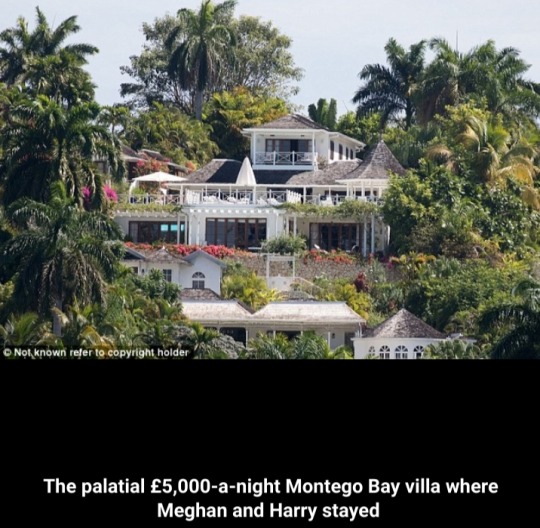
A hotel worker revealed that Meghan and Harry stayed in a £5,000-a-night premium luxury villa, the resort’s most exclusive accommodation away from prying eyes, which comes with its own housekeeper, two pools and a games room with a bar and pool table.
Ever watchful of their safety, security guards were stationed in rooms nearby.
Guests have breakfast served on their balcony, and options include Jamaican delicacies such as ackee (a fruit like a lychee), saltfish with fried dumplings and callaloo (a leafy green vegetable).
It’s quite a change from Meghan’s first trip to the island during her low-key wedding in 2011.
She and her husband-to-be stayed at the four-star Jamaica Inn in Ocho Rios, where they indulged in drinking games and wheelbarrow races before saying their vows.

The (other) very happy couple
It takes a brave bride to invite glamorous, leggy Meghan to your wedding. But flame-haired Lara Hughes-Young didn’t seem bothered about being outshone.
Lara, 30, a software developer at global technology company ThoughtWorks, knows Harry through her new husband ‘Skippy’, who went to Eton with the prince.
She’s the granddaughter of late Conservative MP Michael Hughes-Young.
Her father holds the title Lord St Helens – making her official title the Honourable Lara Inskip.
She is said to have been ‘singing Meghan’s praises’ since meeting her last year.
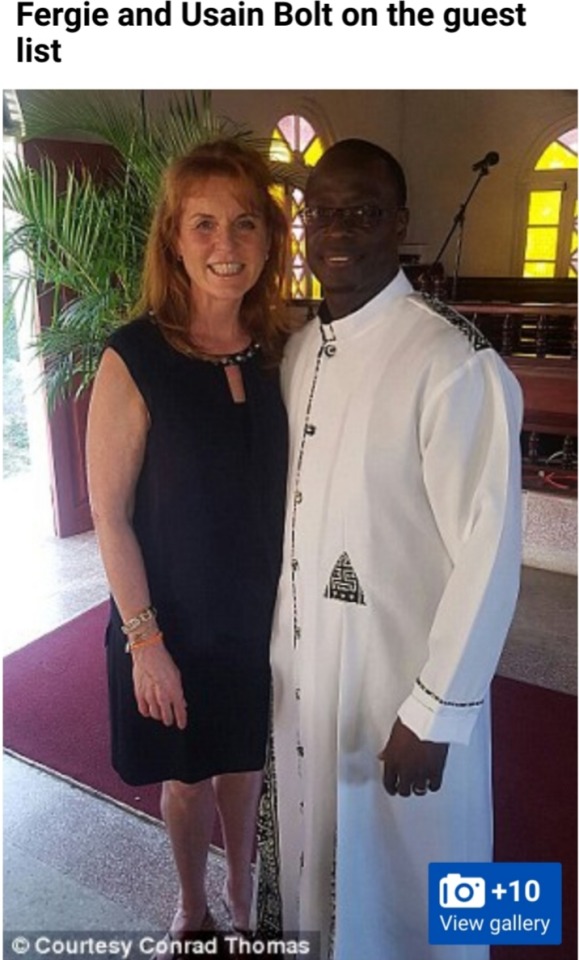
They may have been the focus of attention on the day, but Megan and Harry were far from the only notable guests at the wedding.
Harry’s aunt Sarah Ferguson, the Duchess of York, was on the list, accompanied, insiders say, by her daughter Eugenie.
After the ceremony, a smiling Fergie, wearing a black minidress with a jewelled neck, was seen posing for photographs with Pastor Conrad Thomas, who officiated the ceremony.
Archie Soames, one of the ushers, is the great-grandson of Winston Churchill. Maid of honour Alice St Clair Erskine is an actress who portrayed the Duchess of Cambridge in the 2011 American TV show William and Catherine: A Royal Romance.
Olympic sprinter Usain Bolt is rumoured to have popped in for the party.
Trying not to upstage the bride
For the ceremony, Meghan chose a £1,200 floral print maxi dress by Canadian designer Erdem.
Harry opted for a bespoke navy suit, believed to be from his favourite Savile Row tailor Gieves & Hawkes, and teamed with a yellow rose.
Meghan accessorised her elegant attire with a nude clutch bag and a pair of £249 gold-rimmed sunglasses by Dior to shield her eyes from the hot Jamaican sun.
The bride did her best to stay in the spotlight in a breathtakingly simple white satin gown with a plunging neckline and full, flowing skirt – a direct contrast to Meghan’s high-necked style.

Meghan's tender touch for her prince
Meghan placed a protective arm on Harry’s back as she steered him out of the church and guests say the pair were very tactile throughout the reception as she was introduced to his old friends.
At one point they were seen deep in conversation, as a jacketless Harry drank a beer and Meghan an Aperol spritz cocktail as she continued to rub his back.
Minutes later, she moved even closer, gazing into his eyes and putting her arms around his neck.
‘They are both head over heels and don’t care who sees it,’ said an onlooker.


xxx

31 notes
·
View notes
Text

finishing up this video about the history of tourist economies in the Caribbean but mostly Jamaica since Stephanie’s Jamaican-American. got some new books to add to my list:
Black Ghost of Empire by Kris Manjapra and An Eye for the Tropics by Krista A. Thompson
Black Ghost of Empire being about how emancipations in North America and the Caribbean led to continued codifying of racial castes and An Eye for the Tropics being about American and British elites in the late 19th century transforming Jamaica and the Bahamas into tourist economies to continue to make money off of the islands using the formerly enslaved populations
4 notes
·
View notes